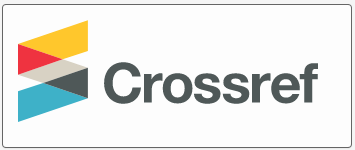Socio-cultural aspects of the introduction of distance learning
DOI:
https://doi.org/10.52340/idw.2023.106Keywords:
distance learning, global pandemic, secondary school, teachers, students, self-efficacyAbstract
In the spring of 2020, school closures as a result of the global COVID-19 pandemic left a billion students out of school. Teachers were transferred to the emergency of distance learning. Countries and families found themselves in a severe economic crisis, which further deepened inequality in access to education. In order to overcome the mentioned challenges, the governments have started to evaluate the educational losses for the implementation of remedial initiatives, which is considered by a number of researchers and organizations as an alternative way to reduce the effect of closing schools. However, monitoring and research of the expected learning losses for the new school year was not carried out, therefore, after the first wave of school closures, the system began to work without a remediation strategy. Emergency distance learning (ERT), which is a temporary transition of teaching to an alternative delivery mode. In the background of the crisis, teachers tried to cope with the situation., which they never expected, everything was done according to the instructions of the administration. The situation led to a decrease in professionalism and efficiency. The Ministry of Education and Science was able to restore the learning process in a distance format in the shortest time, however, the efforts made by the state to ensure universal and inclusive participation of students turned out to be ineffective for the most vulnerable and high-risk group of students, especially in the context of reducing digital inequality.
The purpose of our research is to consider, based on empirical materials, what experiences did secondary school teachers encounter during the ERT's COVID-19 pandemic?
Downloads
References
ბაქრაძე ლ., 2020. ახალი საგანმანათლებო რეალობა. ტერმინები, გამოწვევები, რეკომენდაციები. თბილისი
კუპატაძე ქ., 2009. ელექტრონული სწავლება, თბილისი, გამომცემლობა „უნივერსალი “
ჯანაშია ს., 2021. დისტანციური განათლების არსი და თეორიული საფუძვლები (დისტანციური სწავლების მართვა (პრაქტიკული სახელმძღვანელო სკოლის ადმინისტრატორთათვის) - ავტ.საქართველოს სკოლის ადმინისტრატორთა ასოციაცია“
arlsen A., Holmberg C., Neghina C., 2016. Owusu-Boampong A., Closing the Gap Opportunities for distance education to benefit adult learners in higher education Opportunities for distance education to benefit adult learners in higher education. UNESCO Institute for Lifelong Learning.
eng K., Sol K., 2020. Cambodian Education Forum, -Online learning during COVID-19: Key challenges and suggestions to enhance effectiveness
ыготский Л ., 1926/27. Новое видение и мнение в психоанализе
ნორმატიული აქტები:
საქართველოს განათლებისა და მეცნიერების მინისტრის 2013 წლის 22 აგვისტოს №114/ნ ბრძანებაში ცვლილების შეტანის თაობაზე, საქართველოს განათლების, მეცნიერების, კულტურისა და სპორტის მინისტრის ბრძანება №94/ნ, 2020
Modern teaching methods; Language teaching methodology and information technologies in research and teaching







